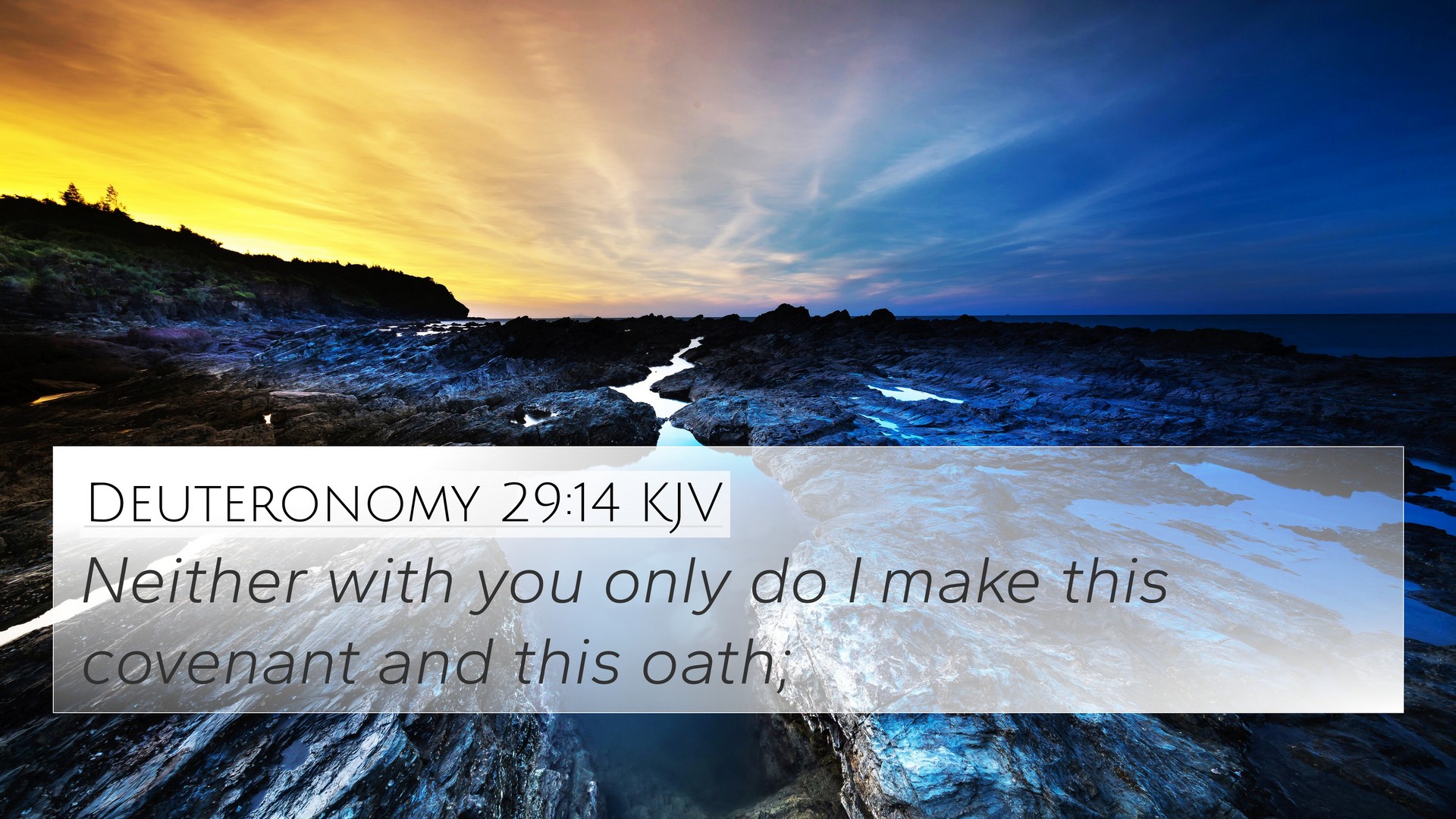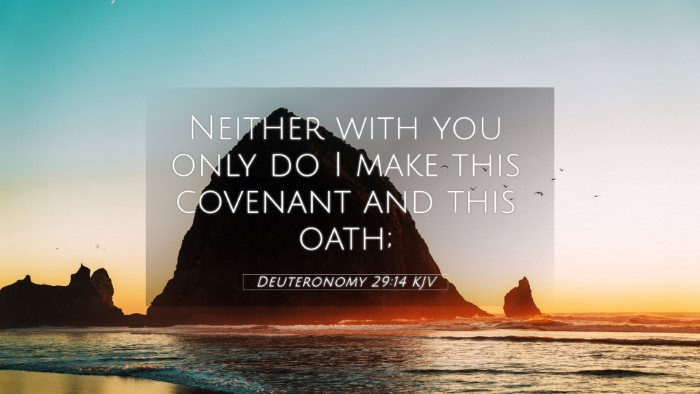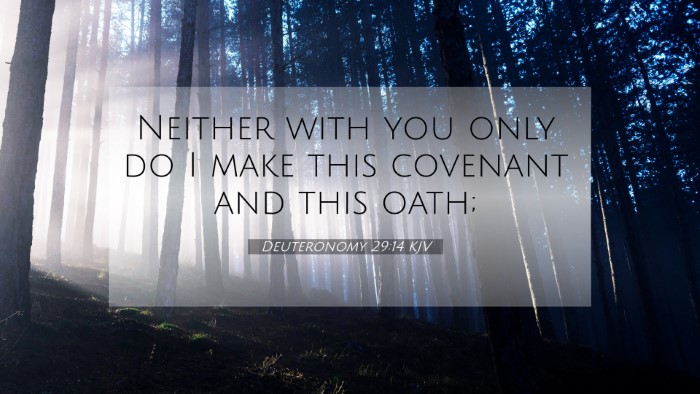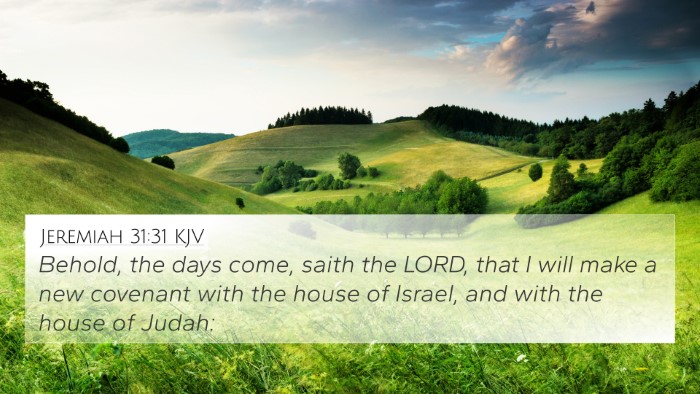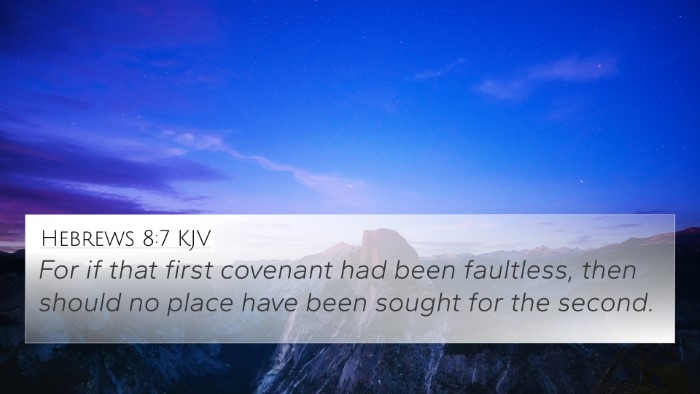Understanding Deuteronomy 29:14
Deuteronomy 29:14 states:
"Neither with you only do I make this covenant and this oath;"
This verse emphasizes the inclusiveness of God's covenant, outlining the solemn agreement made not just with the present generation but extending to future generations. Below, we provide insights from public domain commentaries to help deepen your understanding of this verse.
Insights from Commentaries
Matthew Henry's Commentary
Henry indicates that the covenant mentioned here is significant in affirming that the promises and responsibilities of God’s law are not limited to the individuals currently present but also encompass their descendants. This reflects God’s enduring relationship with His people, suggesting a deep-rooted commitment that spans generations.
Albert Barnes' Notes
Barnes elaborates on the notion that God's covenant involves both privileges and obligations that extend to every member of the community of Israel. The verse reinforces the idea that every generation bears the responsibility to uphold and remember the covenant, which binds them to the past and future.
Adam Clarke's Commentary
Clarke points out the importance of communal memory in understanding this covenant. He stresses that it serves as a reminder of Israel's identity and commitment, illustrating how pivotal the acknowledgment of God’s promises is in shaping the conduct and faith of each generation. This serves to solidify their importance as a collective entity bound by faith.
Bible Cross-References
To fully appreciate Deuteronomy 29:14, it is helpful to explore its connections with other scripture passages. Here are some relevant cross-references:
- Exodus 34:27 - Similar emphasis on the covenant with the people of Israel.
- Leviticus 26:9 - Reiteration of God’s commitments to His people.
- Psalm 105:8-10 - Focus on God remembering His covenant forever.
- Jeremiah 31:31-34 - The New Covenant prophesied, indicating continuity in God’s promises.
- Hebrews 8:8-12 - Discussion on the New Covenant, linking Old Testament and New Testament themes.
- Nahum 1:3 - God’s steadfastness in fulfilling His promises, relevant to the nature of the covenant.
- Matthew 5:17 - Jesus affirms the law and the prophets, linking back to covenantal themes.
Thematic Connections
This verse presents a rich tapestry of interconnected themes found throughout Scriptures. The covenant of God resonates through the narrative of the Bible, and understanding it sheds light on:
- God's faithfulness - He keeps His promises across generations.
- Community responsibility - The obligations stemming from the covenant apply to the whole community.
- Generational blessings - The implications of the covenant extend beyond the present into future descendants.
Tools for Cross-Referencing Biblical Texts
For those looking to explore connections between Bible verses, the following tools and methods can facilitate your study:
- Bible Concordance - Use a concordance to find related verses and themes easily.
- Bible Cross-Reference Guide - Reference guides can provide insights into the thematic links between different books of the Bible.
- Comparative Study of Pauline Epistles - A focused study on Paul’s letters can reveal interconnections.
How to Study Cross-References
To effectively engage in Bible verse analysis and understand the thematic connections, consider the following:
- Identifying common themes - Look for overlapping concepts in different verses.
- Contextual analysis - Understand the context of the verses being compared to gauge their full meaning.
- Sermon Preparation - Utilize cross-references to support teaching and preaching, enhancing the depth of messages.
Conclusion
In summary, Deuteronomy 29:14 serves as a pivotal reminder of God’s enduring covenant with His people, inviting all generations to partake in His promises. By engaging in comparative Bible verse analysis and using cross-referencing Bible study methods, readers can enrich their understanding of Scripture and its interconnected nature.
